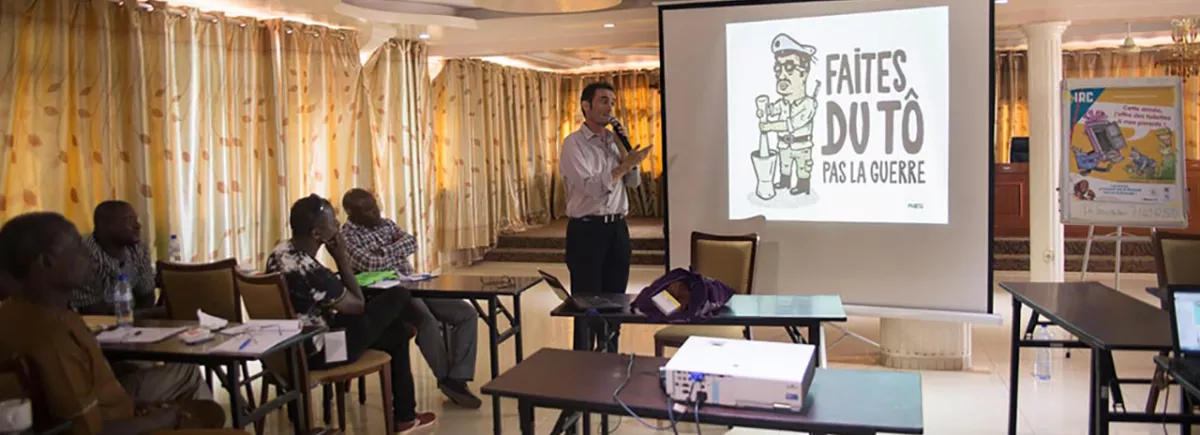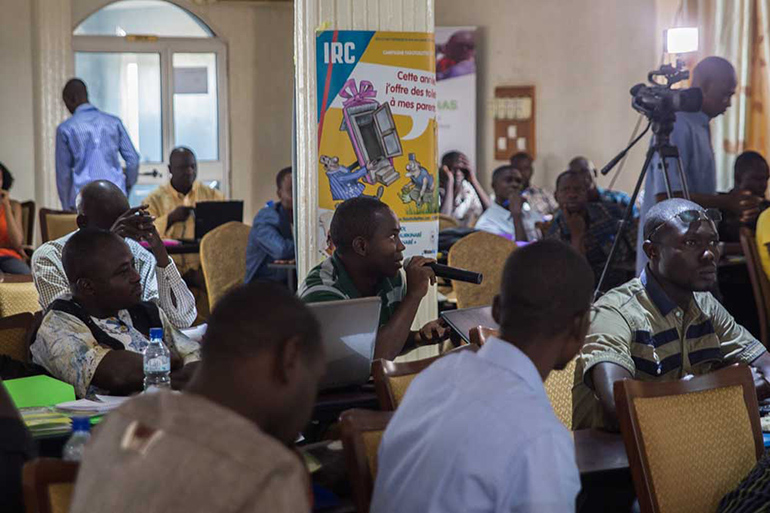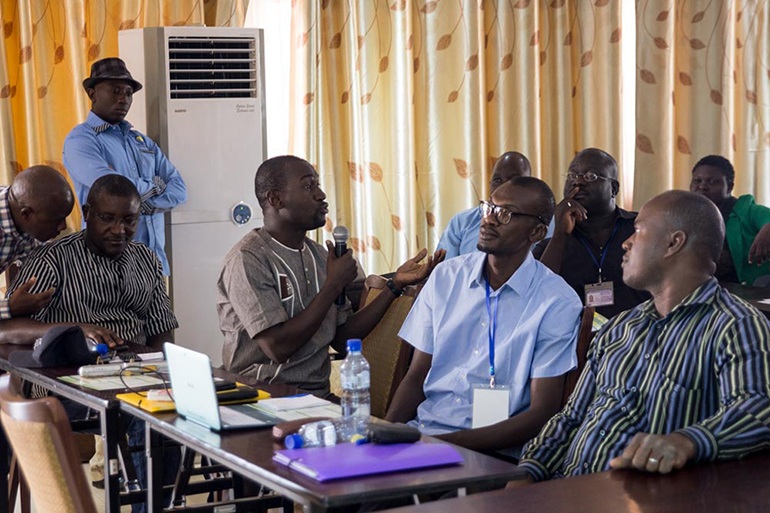
FasoMedias 2 Key concepts in citizen-led control of public initiatives: addressing them, understanding them and implementing them
Related project
Faso Medias 2In the wake of the FasoMedias 2 launch seminar, 60 editors-in-chief, editorial cartoonists and bloggers underwent 5 days of general culture training in the field of key concepts in citizen-led control of public initiatives.
Les participants ont assisté à des ateliers consacrés à renforcer leur méthodologie de recherche et de vérification des informations. Ces ateliers ont initié une réflexion quant aux angles les plus pertinents pour approcher et traiter ces thématiques, pour informer et instruire les citoyens et pour interpeller les leaders politiques et économiques.
This comment came from Koffi Ametepe, a trainer and training coordinator:
"In my view, this training course addressing the area as a whole was an opportunity not only to strengthen capabilities but also for participants to gain a greater awareness of the issues involved. They realised that it is necessary to have an in-depth knowledge of the topics they discuss in their productions and to be better organised in terms of how they gather, process and disseminate information. In fact, I ought also to say that they can now appreciate citizen-led control of public initiatives as the missing link in forming a more functional and therefore more fruitful relationship with listeners, readers and viewers".

During the afternoon sessions, participants attended workshops designed to strengthen their information research and verification methodologies. These sessions were also an opportunity to reflect on the most relevant ways in which to approach and to handle these topics, to inform and to educate citizens, and to challenge political and economic leaders.
One module was devoted to “editorial cartoons", and was organised in partnership with
Cartooning for Peace, led by Damien Glez, a Franco-Burkinian cartoonist and caricaturist, and El Marto, a cartoonist and graphic artist.
Damien Glez told us: “Confronting perceptions of editorial cartoons in a specific media environment is always fascinating. In Burkina Faso, where “cartoons" are practically non-existent, it's essential to take the measure of the extraordinary opening-up of minds to satire against the persistence of legitimate taboos. Much is still to be invented in this field, notably concerning support from less obvious areas".

A second “general culture" session will be organised in the course of 2017 within the context of the FasoMedias 2 project.


